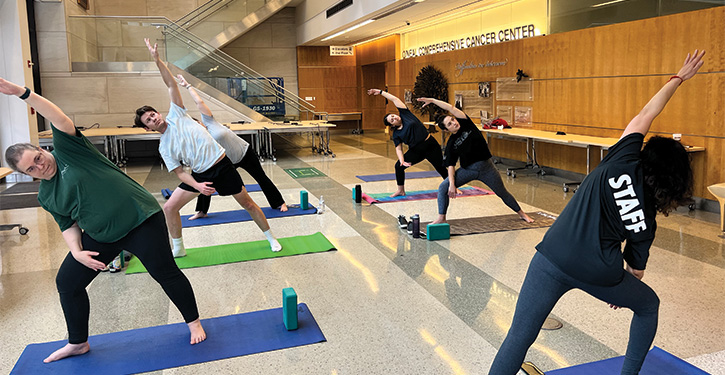Over a dozen campuses across the U.S. have adopted the Okanagan Charter.
It’s a new framework that intends to:
- Transform the health and sustainability of societies.
- Strengthen communities.
- Contribute to the well-being of people, places and the planet.
This initiative’s two primary calls to action include asking postsecondary schools to infuse health into campus culture, and to lead health promotion action and collaboration locally and globally.
The University of Alabama at Birmingham (UAB) was the very first school in the U.S. to formally adopt the charter and become an internationally recognized Health Promoting University (HPU).
Rebecca Kennedy, the assistant vice president for Student Health and Wellbeing, first informed UAB leadership of the charter in 2019 and now serves as the chair for the U.S. Health Promoting Campuses Network (USHPCN).
“The charter reflects the work of individuals from over 45 countries into an aspirational document for universities to guide their well-being work,” said Kennedy. “It’s an internationally recognized framework that fits with UAB’s Forging the Future strategic plan.”
EXTRA CREDIT: Expert advice on mental health outcomes.
Several campus action steps rounding out the charter include advancing research for health promotion, building effective relationships and collaborations, enhancing campus environments, and designing campus services to support equitable access.
Kennedy said UAB has made significant progress on campus, in local community initiatives and in national contributions since adopting the framework.
“We’re mostly using the Okanagan Charter to organize and inspire our already-present initiatives,” said Kennedy. “But our contributions in chairing the USHPCN, presenting nationally and internationally, and hosting the first in-person summit have had tremendous impact on the capacity for this movement to grow across the U.S. to 35 more campuses expected this year.”
The University at Albany, State University of New York (UAlbany) was among the first cohort of campuses to join UAB in adopting the Okanagan Charter. Joyce Dewitt-Parker, the assistant vice president of Student Affairs at UAlbany, said the framework elevates the effort and mission of campus recreation while taking a university-wide approach.
“It’s not just students,” said Dewitt-Parker. “This focuses on staff and faculty as well. The premise of the charter really mirrors the values campus rec professionals already have. What the charter is embracing is for us to work together for the good of everyone on campus. It’s not just about people. It’s about the environment and the spaces we use on campus.”
EXTRA CREDIT: Want more well-being stories? Check out the entire archives here.
Dewitt-Parker said embracing and leading the charter needs to be a commitment made by university presidents to take a “20,000-foot view” of what wellness and well-being truly mean.
For campus rec leaders, Kennedy said to apply the charter’s key principles. “They are welcoming to all who want to take part in everything they offer, from club sports to outdoor recreation trips,” she said. “Leaders can prioritize sustainable practices and teach about the importance of caring for our environment. They can understand the socioecological barriers that have impacted human health and work to make systemic change in support of equity.”
Kennedy recommended campus rec leaders work to include the voices of students to determine what barriers exist. As an HPU, UAB is consistently examining its polices, culture and environment to ensure it’s a place where everyone can thrive.
“Understanding our own privilege and expanding our offerings to include students from every identity can go a long way toward promoting health on our campus and beyond,” said Kennedy. “The greatest positive is the way in which the charter gives us a shared language and a common agenda. We are embedding health in all we do, even more than we did before, and that is saying a lot.”










